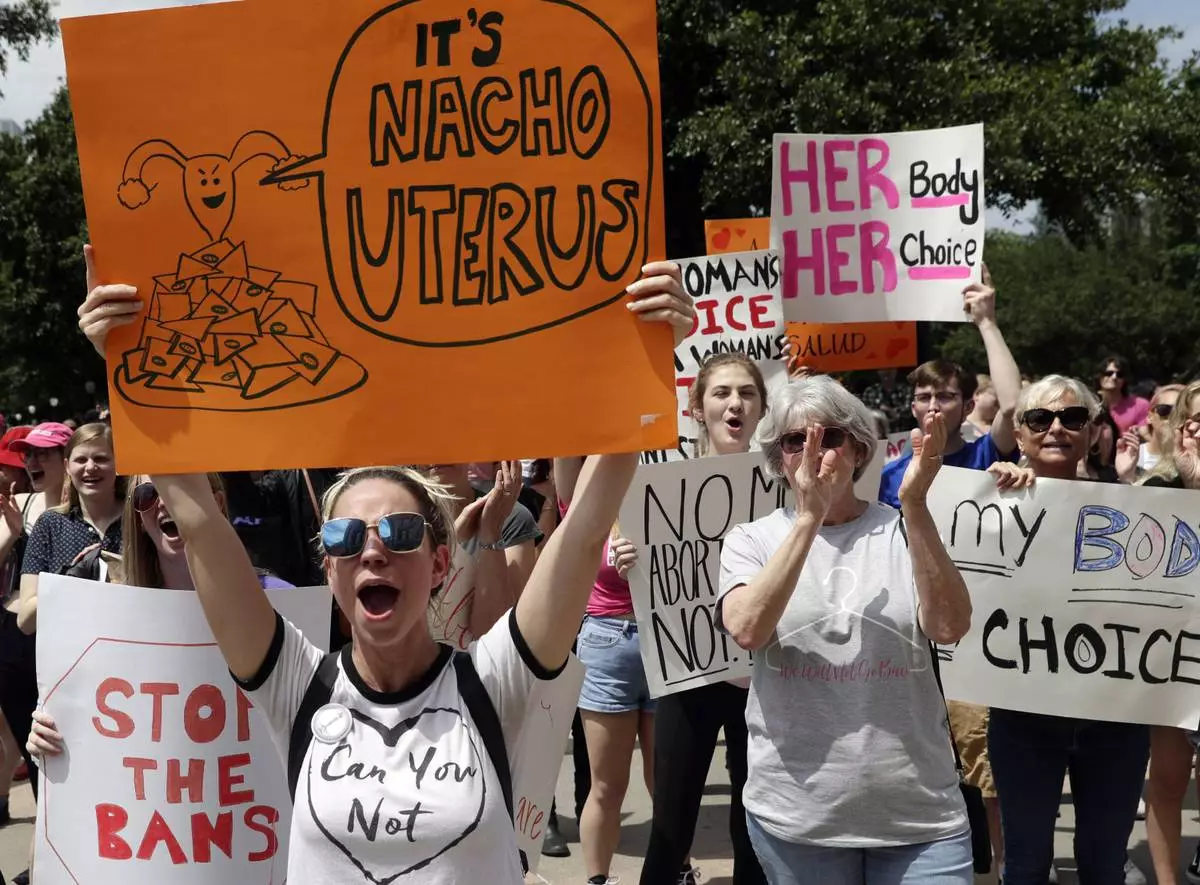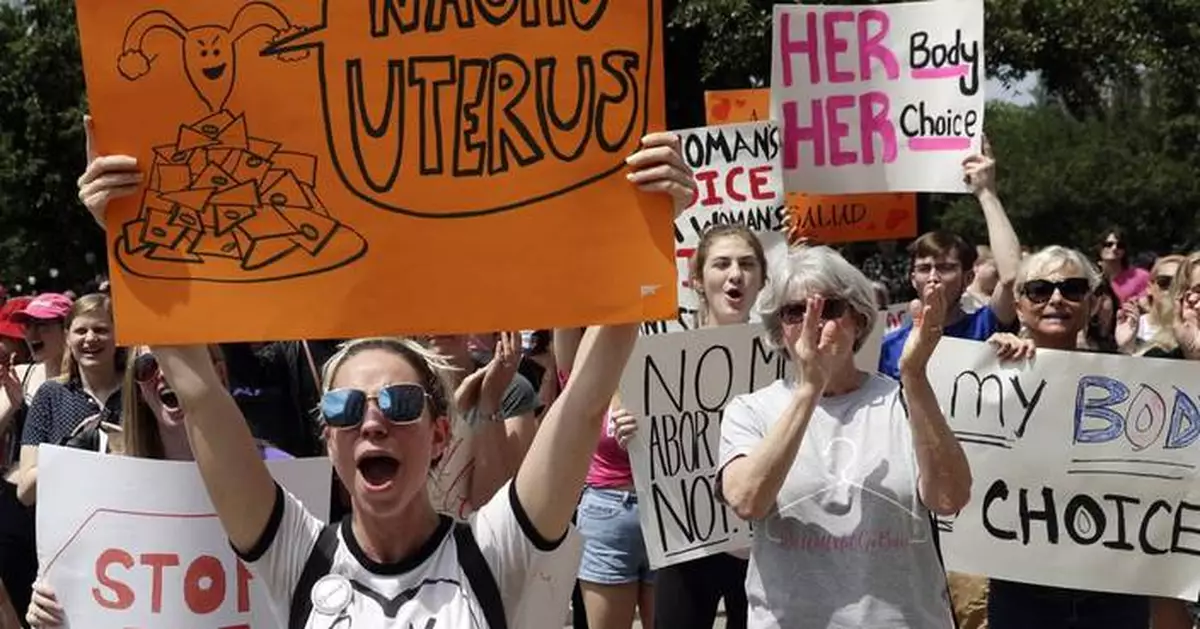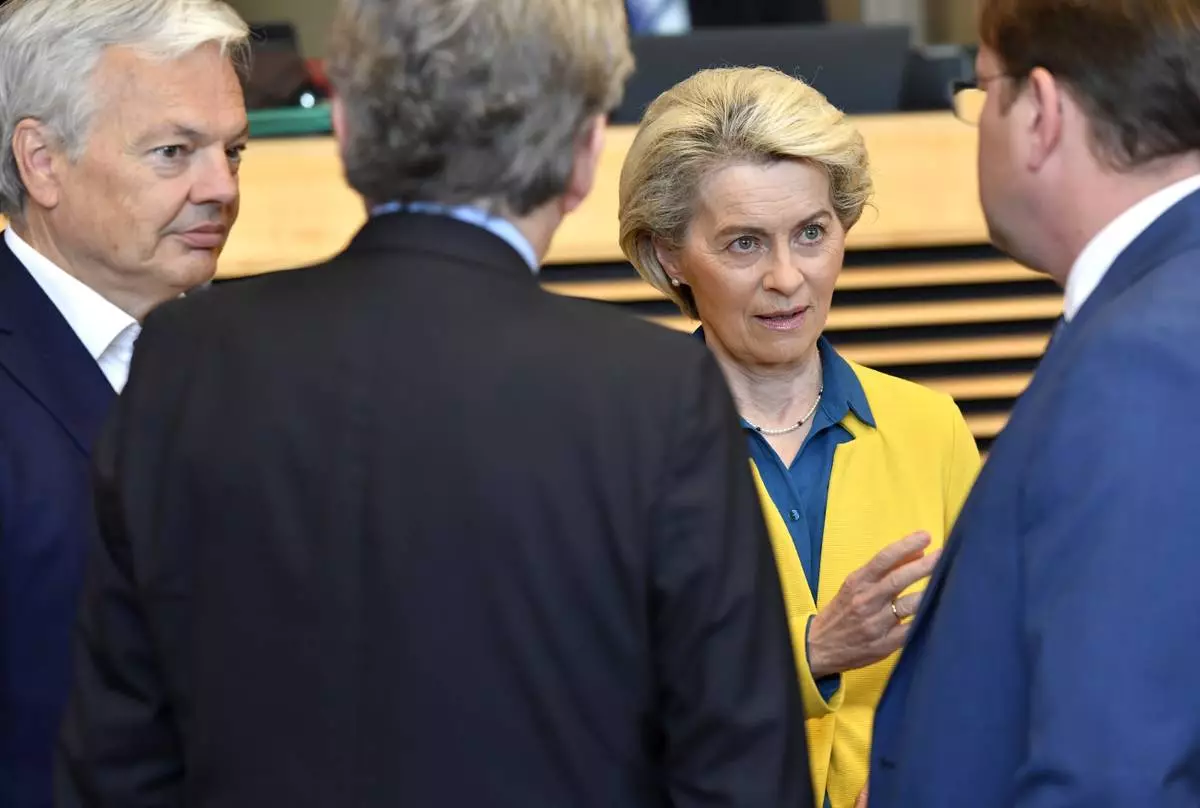More women chose to have their tubes tied after Roe v. Wade was overturned in 2022, a new study shows, and the biggest increases were in states that ban abortion.
A research letter published Wednesday in JAMA examined insurance claims data from 2021 and 2022 for around 4.8 million women who got tubal ligations, which are surgeries to close the fallopian tubes so the patient can no longer get pregnant. The data came from 36 states and Washington, D.C., and researchers categorized these places as “banned,” “limited” or “protected,” based on their abortion policies.
In the 18 months before the Dobbs decision in late June 2022, tubal ligations remained stable in all three groups of states. But in the latter half of 2022, the procedure rose in all three groups. Researchers also looked at sustained change in the numbers over time, finding that tubal ligations rose by 3% each month in banned states.
It’s “not entirely surprising" given the changes to abortion laws, said Xiao Xu, lead author of the research letter and associate professor of reproductive sciences at Columbia University's Vagelos College of Physicians and Surgeons.
The research letter adds to other findings about a rise in sterilization procedures after Roe was overturned, including a study from researchers published in April in JAMA Health Forum that found an abrupt increase in tubal ligations among women 18-30 years old and vasectomies among men in that age group.
“It looks like the data they used were able to break things down by state, which is nice and something we were unable to do with the data we used,” said Jacqueline Ellison, an author of the April study who works at the University of Pittsburgh's School of Public Health.
Dr. Clayton Alfonso recalled seeing a rise in tubal ligations in his OB-GYN practice at Duke University in North Carolina, “especially closer to the Dobbs decision.”
Patients who didn’t want more — or any — children were worried about contraceptives failing and becoming pregnant unexpectedly, said Alfonso, who wasn't involved in either study. Patients told him they would rather be sterilized in case they weren't able to get an abortion.
North Carolina banned most abortions after 12 weeks of pregnancy in 2023. Alfonso said the the number of patients seeking tubal ligations has fallen a bit, which he suspects happened when people became more certain about local laws.
He also said he'd like to see research on what happens past 2022, given the “ever-evolving landscape." Xu said her team is interested in doing such a study when the data becomes available.
The Associated Press Health and Science Department receives support from the Howard Hughes Medical Institute’s Science and Educational Media Group. The AP is solely responsible for all content.

FILE - A group gathers to protest abortion restrictions at the State Capitol in Austin, Texas, Tuesday, May 21, 2019. (AP Photo/Eric Gay, File)










